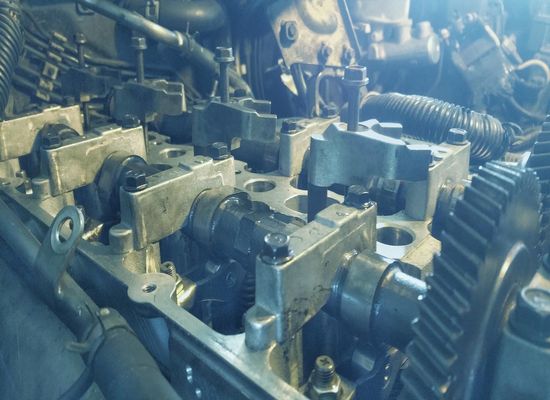Engine oil is as important for your car as water is for you.
Can you live without water?
Well, neither can your car function properly without oil! Engine oil, also known as a lubricant, functions as a soothing agent for the engine. Piston and other moving parts of the engine tend to create friction as they rub together and that’s where oil comes in.
Engine oil helps reduce friction which saves the engine from getting overheated. So naturally, when oil leakage occurs, it can pose serious problems for you.
But how does engine oil leakage happen?
Well, if you are thinking about what we are asking then you are in luck! In the following article, we will discuss the 5 common signs of engine oil leakage.
5 Common Signs of Engine Oil Leakage
1: The Oil Filter Problem:
Let’s start with the most common cause of oil leakage; the oil filter! The oil filter mostly causes leakage because for one obvious reason many people, who change oil at home, forget to replace the filter. Ideally, the oil filter should be changed every time oil is replaced.
How to check the oil leak in the filter?
Check the filter seal if it’s intact and tightened. Moreover, ensure that the o-ring or gasket isn’t protruding out.
2: Gasket’s Sign:
Think of a gasket as a buffer that lies between different components of a vehicle. Since it’s in many different locations and acts as a seal, it naturally offers a lot of possibilities for leakage.
Following are some of the common gaskets that can cause engine oil leakage:
Cylinder head gasket
Oil pan gasket
Valve cover gasket
Timing cover gasket
However, finding a leak in a gasket isn’t the same as finding one in a gasket. Therefore, it’s recommended that the vehicle be checked by a professional.
3: The Drain Plug Problem:
Who knew changing oil can cause oil leakage, huh?
Yes, that’s a fact!
Each time you change the engine oil, you have to plug out the drain plug. Sometimes you may be frustrated and plug out with excessive force or you may loosen it by plugging it out over time. Also, many drain plugs have gaskets or seals which can wear out over time and cause leakage.
So how do you solve that?
Well, it’s simpler than you think. If you find a drain plug loosened, simply tighten it, and if that doesn’t work, simply replace it with a new one.
4: The Seal Problem:
Engine oil’s place is inside the engine and seals make sure it stays inside. So if you experience oil leakage, it might be from the crankshaft seal.
Crankshaft: Crankshaft seals can be found on both ends of the crankshaft. Check these seals for cracks, damage, and if they are dried out.
Tip: If you find oil dripping on the underside of the engine then it’s a small leak. If it’s leaking on the front or rear side of the engine then it’s a big leak.
Summing it up:
Engine oil leakage is a serious problem and must be avoided at any cost. Drive slowly on uneven roads and make sure to keep checking if your oil needs changing.
Wondering how you know if your car needs an oil change?
Read our guide:
Engine Oil Guide: 5 Major Signs Your Car Needs an Oil Change



